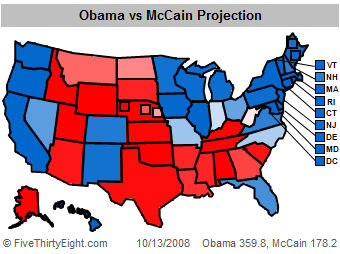 Here are some quick hits of issues on the Sex and Sensibility front that caught my eye this week:
Here are some quick hits of issues on the Sex and Sensibility front that caught my eye this week:
1. When Sex and Politics Meet: Amy Schalet, whom Virigina referenced in her post on Juno and teenage love back in January, is at it again with a brilliant article in the Washington Post. This time she has a question for Sarah Palin:
Should public school students be taught that contraception and condoms can prevent unintended pregnancy and disease?
But beyond this, she addresses how parents should address the question of sexuality with their teenage children. A question near and dear to my heart, Schalet makes a great historical argument on the changing role of sexuality in young people’s lives:
Simply put, the circumstances and aspirations of young people have changed since the 1950s, but our society’s narratives about the place of sexuality and the nature of relationships do not reflect these changes. And we pay a price for that inability to talk realistically about teenage sexuality and love.
Of course, with all the hoopla around Sarah Palin’s daughter’s pregnancy. In my opinion, this is a topic that is off-bounds, in my opinion, in any facile understanding of Palin’s VP suitability, but totally in-bounds in questions of conservatives’ and republicans’ generally obtuse and unrealistic (read: abstinence only) approach to teenage sexuality and public sexual health education. And Schalet makes a valid point on this topic:
The Palins, of course, deserve credit for their public embrace of their eldest daughter, which shows that, ideology notwithstanding, parents still love their daughters even if they have sex. If that embrace allays fears that prompt girls to keep sex a secret from their parents, then the Republican Party may have, inadvertently, facilitated the honest conversations we need to move beyond the myth-only approach to adolescent sexuality.
Given Palin’s especial appeal for the conservative Christian base, I wonder whether Palin speaking openly and warmly about her unmarried daughter’s pregnancy does indeed represent a turning-point in public discourse on the realities of teenage sex and love.
2. And about those realities of sex and love: Part of what I love about the feminist blogosphere community is that it acts in many ways like the consciousness-raising groups of the 70s, except with a very different purpose and outcome. Instead of sharing lived experiences that make women realize we all have similar ideas and problems, what often happens is that we realize the diversity of the female experience.
This happened recently in the comments section of a post Courtney did at Feministing on whether it is feminist to demand a female orgasm. The discussion was extremely interesting, and even got a bit brutal with arguments on what a woman should or should not demand from a sexual partner, and whether we should even attempt to write such rules. I’m starting off with my comment and then a few other representative comments:
I have a slightly different take on this question. First, I have to question the extent to which we center everything around the female orgasm. There are plenty of woman I know who are unable to achieve orgasm with a partner, long term or hookup, no matter what they or their partners do. I even know women who have never been able to achieve orgasm on their own– an idea I admittedly do find distressful, because let’s be honest, orgasm can be a huge release.
That being said, the focus on the orgasm is a very male-centric notion. Some women can get plenty of pleasure from various sexual acts, which may or may not culminate in orgasm, and they will still be fulfilled and still think they had a pretty damn good hookup. Orgasming can be great– but must it be the very definition of what we label sexually “good”?
If we’re going to ask “what is feminist” I would argue that it is more feminist for a woman to decide whether she feels comfortable revealing what can be intimate information (e.g. “I have a hard time orgasming during sex” or “I’ve never orgasmed with a partner before”) to someone who may just be there for good time sex. I really agree with ottermatic.wordpress.com. It is just too simplistic to say that orgasm is something that must and can be done, and that must be made an issue of if it is not done. For a lot of women, it just isn’t that easy.
-Kristen
Here is someone with a different look:
Thanks for this, because in the 10 years I’ve been sexually active, I’ve been faking it the whole time. Every time I’m in between partners, I think to myself that it’s so stupid and the only reason I’m doing it is because my partners’ ego seems to hinge on it (one stopped going down on me because I never did orgasm and it HURT HIS FEELINGS), and I think, “I’M the one losing out here, my orgasm is for ME, not them, I need to cut this shit out.” And then I end up in that stupid trap over and over again. Honestly, I don’t even know HOW to have one with another person, for me, it’s totally a solo thing.
I think it’s definitely going to take a really good (emotionally), long-term partner for me to get there, amen to the idea that casual hookups just don’t produce good sex (mine have ALL been disappointing – good sex is almost like a language, and it doesn’t just happen). I’m going to go read the two other entries you linked, but if anyone else wants to kick my ass and offer any insight that I might benefit from, please feel free. I’m only hurting myself with my stupid behavior and really need to end it.
-Alixana
And finally, marilove on whether it actually does any good to try to communicate your needs to your partner:
And Anonymouse is right — many men, when you tell them you didn’t come or have issues coming, take it as a personal insult. They don’t really care about our feelings, but rather THEIR feelings and how are not coming effects THEM. They pout, they think something is wrong with us, they get angry. It happens even with the more progressive men I’ve slept with.
For more of the 107 perspectives on this issue, visit the post at Feministing.
 Now, I am not one to trust the polls or to stop from knocking on wood every time a little flicker of hope rises in that maybe, just maybe, we’ll see President Obama in office come January. But in the spirit of things that may brighten up the day a bit, take a look at this analysis from the super-analyzers over at the FiveThirtyEight blog, which does some intense number-crunching and analyses of these way-too-many-too-confusing (ok, at least for me, who in studying for the GRE last night made some pretty red-faced math mistakes) poll numbers. According to their analysis, John McCain only has a 5.9% chance of winning the electoral college. Now this may seem overly optimistic even to the most glass-full of us, but take a look at their reasoning. You may find a little smile tugging at the corner of your lips.
Now, I am not one to trust the polls or to stop from knocking on wood every time a little flicker of hope rises in that maybe, just maybe, we’ll see President Obama in office come January. But in the spirit of things that may brighten up the day a bit, take a look at this analysis from the super-analyzers over at the FiveThirtyEight blog, which does some intense number-crunching and analyses of these way-too-many-too-confusing (ok, at least for me, who in studying for the GRE last night made some pretty red-faced math mistakes) poll numbers. According to their analysis, John McCain only has a 5.9% chance of winning the electoral college. Now this may seem overly optimistic even to the most glass-full of us, but take a look at their reasoning. You may find a little smile tugging at the corner of your lips.
 To cap off your day, here’s Framingham State College’s Virginia Rutter with a great post on what exactly Sarah Palin doesn’t seem to get about “feminism” and “sexism” and how this allows her to erroneously invoke identity politics in her favor.–Kristen
To cap off your day, here’s Framingham State College’s Virginia Rutter with a great post on what exactly Sarah Palin doesn’t seem to get about “feminism” and “sexism” and how this allows her to erroneously invoke identity politics in her favor.–Kristen Here are some quick hits of issues on the Sex and Sensibility front that caught my eye this week:
Here are some quick hits of issues on the Sex and Sensibility front that caught my eye this week: For all those who’ve been working furiously on their Election 2008 book, here are a few tips on getting that book to the editor from a real insider,
For all those who’ve been working furiously on their Election 2008 book, here are a few tips on getting that book to the editor from a real insider,  At a rally on Saturday in California, Sarah Palin offered up what
At a rally on Saturday in California, Sarah Palin offered up what  Robin Morgan wrote an anti-Palin piece a couple of days ago entitled,
Robin Morgan wrote an anti-Palin piece a couple of days ago entitled, 



